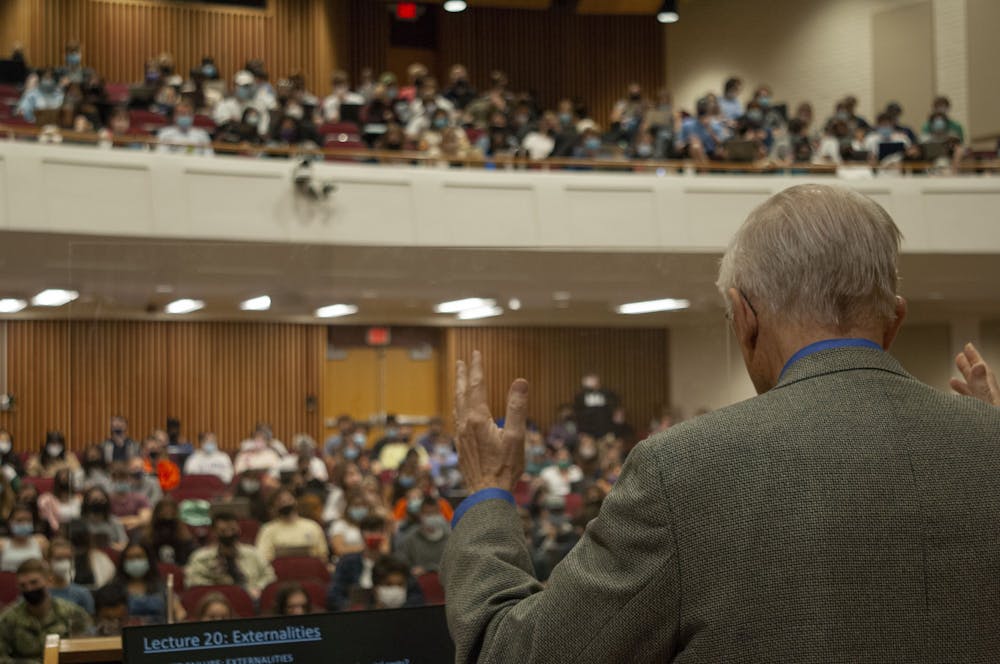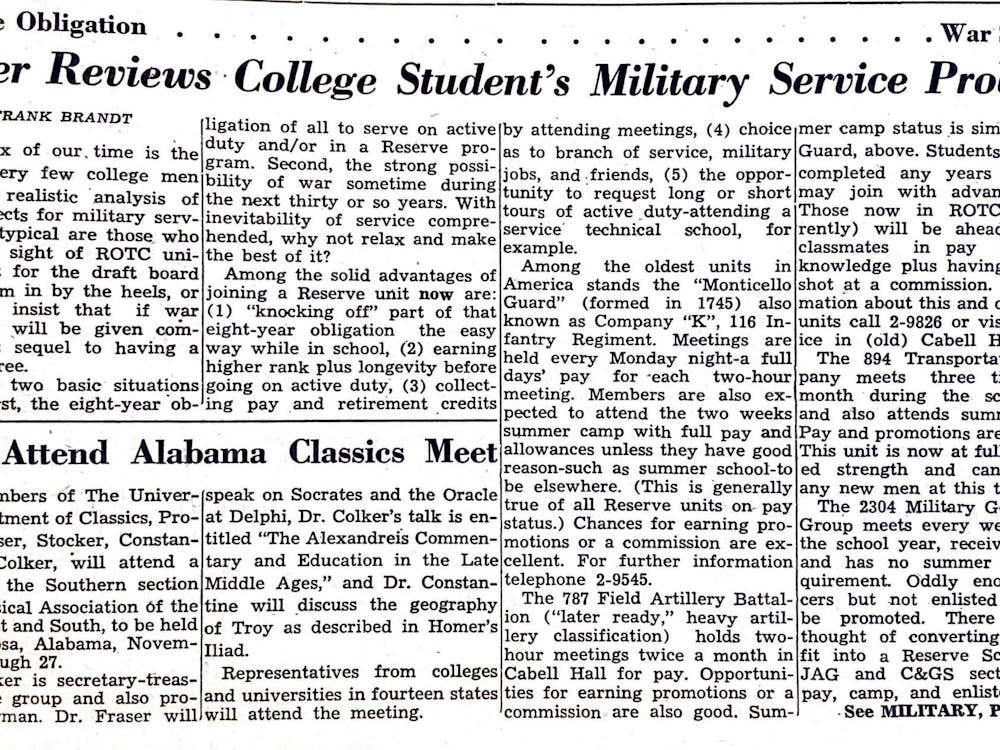The oldest group of undergraduate students at the University today started in 2019, two years after hundreds of white supremacists descended on Charlottesville in summer 2017. Professors now tell those stories to students who were not present, weaving the events into their curricula by sharing their individual experiences, inviting community members to speak and situating the events within a greater national history.
Media Studies Professor Siva Vaidhyanathan co-taught a J-term class in 2021 called “Democracy in Danger” that focused on threats to democracy and spent considerable time discussing the events of Aug. 11 and 12. Vaidhyanathan is also a co-host for the “Democracy in Danger” podcast produced by the U.Va. Media Lab. Both the podcast and the class explain that the “Unite the Right” rally was an attempt to control who can participate in American democracy.
“It's important that we continue to talk about not only the harm that those forces did, to this country, in this town, in this University, but also talk about the spirit of the students and faculty and staff who made a stand against those people,” Vaidhyanathan said.
Vaidhyanathan says it’s important to address the “Unite the Right” rally from a more emotional and human perspective with students who weren’t in Charlottesville in 2017. Talking about Aug. 11 and 12 brings up strong emotions for him, ones he doesn’t attempt to hide from his students. He thinks it makes him a better teacher, one who can help students understand the trauma the community underwent.
“I think the big mistake would be to look at events like August 2017 or January 2021 clinically, analytically, theoretically,” Vaidhyanathan said. “I feel a lot more emotional when I teach about democracy and justice than I did before … I feel it a lot more personally in the classroom.”
Other professors, including Kirt Von Daacke, co-chair of the President’s Commission on Slavery and the University — a committee aimed at advising the University on how to best commemorate the Univeristy’s history of enslavement — and professor in the department of history, also teach directly about the events.
Von Daacke teaches two classes meant to be taken consecutively. The first in the fall, “Slavery and Its Legacies,” begins with local history prior to the University’s founding. The spring semester class, “The Aftermath of Slavery at U.Va,” ends with present-day life at the University and how the impacts of enslavement are felt in the community.
When he talks about Aug. 11 and 12 in his spring semester class, von Daacke said it is crucial to invite community members who were present for the events to speak with students.
“That's the kind of voices you need to hear, someone who lived through it, experienced it and can talk about it — because it's very easy from afar to not understand,” von Daacke said.
For professors who do not teach a class directly relating to the events, many still find it important to educate students on Aug. 11 and 12. Larry Sabato, U.Va. Center for Politics director and politics professor, finds time at the beginning of the semester to briefly explain what happened to his students and speak on his own experience.
Sabato also directed the Emmy-award winning “CHARLOTTESVILLE” — a documentary about the “Unite the Right” rally which relies upon first hand accounts from victims and witnesses to warn viewers about increasing numbers of white nationalists groups.
Sabato was living on the Lawn in 2017 and reflected on the traumatic experience of witnessing white supremacist march in front of his home. Sabato stated that the events are difficult for him to talk about as discussion evokes distressing memories yet he still finds it important for students to understand what occurred in Aug 2017.
“It's not a memory that I particularly wanted to revive, but I know people need to know about it,” Sabato said.
In teaching about the “Unite the Right” rally, each professor expressed the importance of putting the events into a local and national context.
Von Daacke said that he places events within the University’s history of enslavement, helping students understand how this recent expression of white supremacy grew from a history of racism. He explained that the 2017 events were only a modern method of expressing the same racism that was present at the founding of the University.
“What you're witnessing over that summer [of 2017], is the passing of the generational torch of white supremacist ideas,” von Daacke said.
Von Daacke also uses the rally to have students reflect on where they grew up and to better understand the “complex mess that is American history.”
As for national context, each professor agreed that the 2017 events are part of a national movement of white supremacy and were a precursor to the Jan. 6 insurrection at the U.S. Capitol. Several individuals who participated in the “Unite the Right” rally were identified as protestors at the Capitol storming.
Vaidhyanathan said that the University has a tendency to form a bubble from the outside world but that Aug. 11 and 12 forced the University community to reckon with local and national issues.
“On those two days in 2017, there was no getting around the fact that the University of Virginia and Charlottesville are in the center of the reckoning that the United States has to go through to deal with its ugly history and its potential to be great in the future,” Vaidhyanathan said.
In addition to the storming of the Capitol and the “Unite the Right” rally, groups with similar far-right ideals have participated in violent events across the country.
Vaidhyanathan stated that the 2018 shooting at synagogue in Pittsburgh — which claimed the lives of 11 individuals — and the 2019 shooting at a Walmart in El Paso, Texas — which claimed 23 lives — were examples of this white nationalism.
Sabato also acknowledged that what took place in Charlottesville and at the University were not isolated events and must be understood in order to prevent similar events from continuing to take place.
“I think we definitely, internally as a community, need to make sure that people know what happened and how horrible it was and why it happened and how to prevent it from happening again — not just here but anywhere,” Sabato said.
Sabato said the events of 2017 continue to spur him to encourage students to be active citizens and participate in politics.
“You can't just sit back and say, well, I'm not going to be involved, I'll let other people handle it,” Sabato said.
For new students arriving at the University, Vaidhyanathan stated the importance of explaining the “Unite the Right” rally when teaching about life at the University.
“The conversations in classes and around grounds are definitely still framed by the trauma of August 2017,” Vaidhyanathan said.





